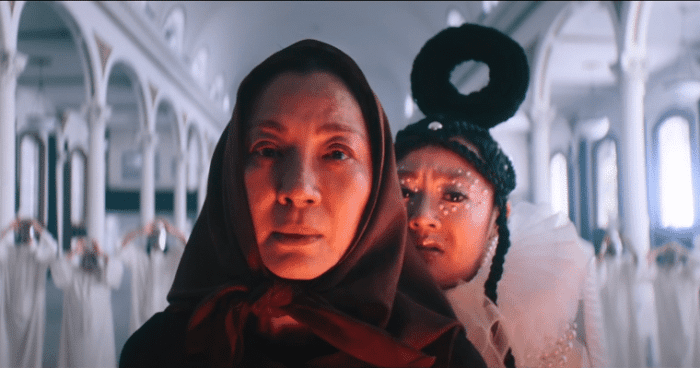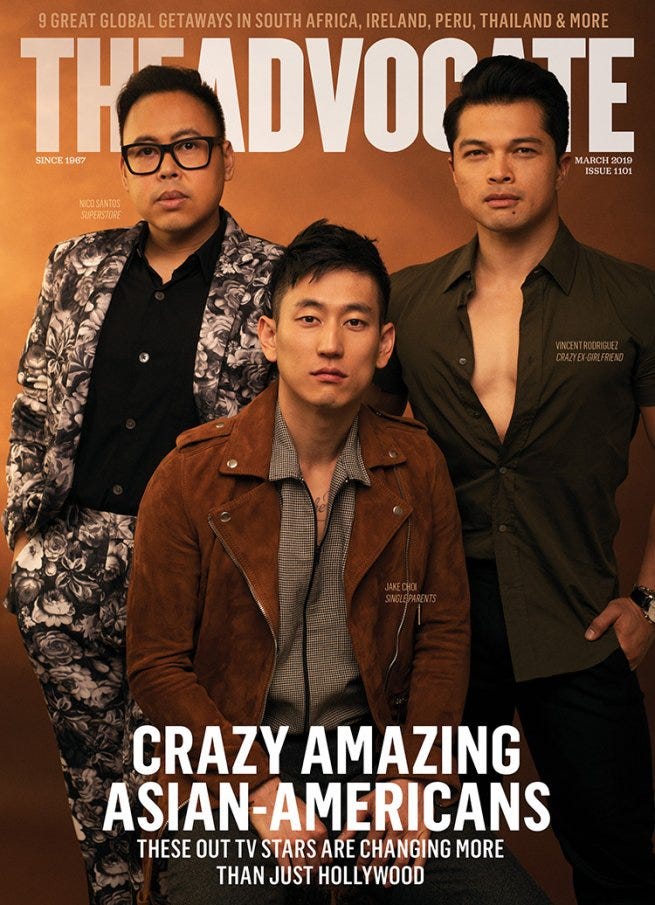LGBTQ+ asians in the US: between a rock and a hard place
Some facts as we enter Asian American and Pacific Islander Heritage Month
The topic of LGBTQ+ Asian-Americans and Pacific Islanders in the U.S. requires a hard look at racism in and out of the LGBTQ+ community, collectivism versus individualism, and geopolitics in Asia —a rather uncomfortable trifecta.
In 2023, the U.S. awoke briefly to the specific experience of an Asian American lesbian through the brilliant movie "Everything Everywhere All at Once.” In the film, Michelle Yeoh's character Evelyn, an immigrant Chinese-American laundromat owner, struggles to accept that her daughter, Joy, is a lesbian. Evelyn pretends to deal with the whole thing but still tries to prevent Joy from introducing her girlfriend to her grandfather. And in the meantime, Joy is on the brink of a nervous breakdown.
Caught between a rock and a hard place
It makes for a great show but also reflects the reality faced by AAPI LGBTQ+ people: often ostracized in their community for being gay or trans and shamed by LGBTQ+ circles for their Asian heritage, they find themselves caught between a rock and a hard place. Threats to family connectedness, a key proponent of mental health, particularly for young people, are often counterbalanced by community support for LGBTQ+ people. But, unfortunately, the LGBTQ+ embrace remains elusive for AAPI LGBTQ+ people.
The conservative attitudes of Asian Americans on sexual orientation and gender identity, a legacy of colonialism bolstered at times by evangelical Catholicism, are made more complicated by the relative lack of progress in many countries in Asia, oscillating between gains and setbacks. This was recently illustrated in a panel I moderated for the Institute of Current World Affairs - a must-see if you are interested in the nuanced situation in China (spoiler alert: the private sector has a role to play). As Asian Americans tend to form a more recent wave of immigration, this continues to matter.
The cohabitation of strict Asian traditions and the American individualistic culture, the stigma of being gay, and anti-Asian racism within and outside the LGBTQ+ community can form a deadly cocktail. According to the Williams Institute, one-fifth (21%) of AAPI LGBTQ+ adults have been diagnosed with depression, while the Trevor Project concluded that 40% of AAPI LGBTQ+ youths had considered suicide in 2021.
Stereotyping, representation in the media, and Hikaru Sulu
Gay Asian Americans also face additional burdens linked to media representation and stereotyping.
In 2023, Asian Americans are still rarely welcome in media and entertainment spaces, LGBTQ+ Asian Americans even less, while LGBTQ+ Asian American males are at the unicorn level. This revolutionary 2019 cover of The Advocate with Vincent Rodriguez ("Crazy Ex-Girlfriend"), Jake Choi ("Single Parents"), and Nico Santos ("Crazy Rich Asians") says it all. George Takei is one of these unicorns. He famously came out late at 68 because he knew his job prospects would diminish seriously as a gay Asian American actor. Since then, he has been a powerful voice for the community and, more generally, LGBTQ+ Rights. My friend Geena Rocero, whose memoir Horse Barbie is coming out, is another example of a visible Asian trans woman who has been a grand champion. And let’s not forget the first U.S. lesbian Ambassador, Chantale Wong, who represents the country at the Asian Development Bank and doing her part in changing hearts and minds.
Underrepresentation and racism can also be explained to this day by the geopolitical interests of America in the region and its historical relationship to it. Listening to the accusations of 'unAmericanism' against Asian-American business leaders on the Hill in the past few weeks, oddly targeting Singaporeans businessmen, is telling; it feels very 1940.
Stereotypes regarding Gay Asian American males and the white standard of Western masculinity are deeply entrenched in American mindsets, including in the LGBTQ+ community. Collectivism is perceived as weak and feminine; therefore, Gay Asian American males are perceived as submissive. This is particularly true for East and Southeast Asia and, to a lesser extent, the Indian subcontinent. A quick venture on Grindr for gay AAPI allows them to check that these stereotypes are thriving.
Studies demonstrate that the ethnicities most commonly represented in LGBTQ+ Asian Americans are Chinese (40%), Filipino/a (19%), and Japanese (11%). All these groups are linked to three countries with “complex” historical and geopolitical relationships with the United States.
The model minority stereotype
The “model minority” stereotype also hinders economic inclusion efforts: many assume “highly educated, highly performing” LGBTQ+ AAPI will be fine. In reality, the incidence of poverty among LGBTQ+ AAPI is much higher than in the rest of the community, and LGBTQ+ people often cannot rely on diaspora support. LGBTQ+ AAPI do not benefit equally from Asian-American success: among the 29 LGBTQ+ individuals we identified in the Fortune500 Boardroom, only 1 is Asian-American: Rita Lane. In the Candidates of the Association of LGBTQ+ Directors, AAPI also represents a tiny number of individuals. While the question of LGBTQ+ AAPI briefly gathered some attention at the peak of anti-Asian hate crimes during the pandemic, the country rapidly moved on.
The fastest-growing community in LGBTQ+ America
Because AAPI individuals are estimated to represent only 3% of all LGBTQ+ people in America, or about 650,000 people (43% of whom live in California), they are often ignored. Yet, this number should grow tremendously, driven by more people coming out, fresh immigration, and natality.
In May 2021, The Williams Institute published an eye-opening report titled “AAPI LGBT Adults in the U.S.: LGBT Well-Being at the Intersection of Race.” Among the most striking statistics is the generational gap. Three-quarters (73%) of AAPI LGBT adults are under age 35 compared to 56% of AAPI non-LGBT adults, showcasing that few people came out in the AAPI community in previous generations. While this means that generational tensions on sexual orientation and gender identity are now exacerbated, it also means AAPI will self-identify as LGBTQ+ more often as generations pass.
AAPI Heritage Month starts this Monday. It is an opportunity to reflect on the singular experience of LGBTQ+ Asian Americans and support the organizations championing their rights and visibility, such as the National Queer Asian Pacific Islander Alliance at the national level or API Equality-LA (APIELA) in California. As Pride Month and the celebration of our community succeed AAPI Heritage Month the following month, let’s make sure the LGBTQ+ community plays its role in showcasing inclusion. An easy indicator is to count the number of Asian Americans in the room you stand in or the stage you speak at.







